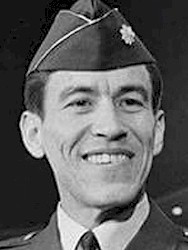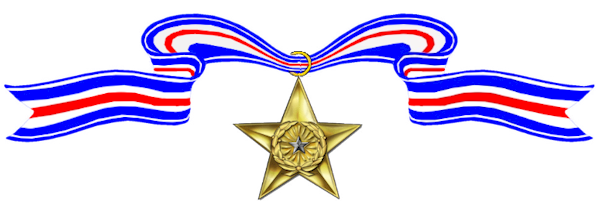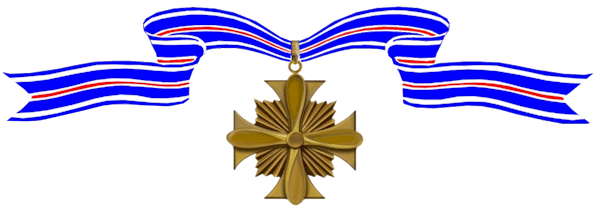Jose Luna was interned as a Prisoner of War in North Vietnam after he was shot down on March 10, 1967, and was held until his release on March 4, 1973.

–
Born:
,
Home:
,
Awards Received
-

Silver Star
-

Prisoner of War Medal
-

Silver Star
-
Silver Star
Service:
United States Air ForceRank:
CaptainBatallion:
354th Tactical Fighter SquadronRegiment:
355th Tactical Fighter WingDivision:
Takhli Royal Thai Air Force Base, ThailandAction Date:
March 10, 1967
The President of the United States of America, authorized by Act of Congress July 9, 1918 (amended by an act of July 25, 1963), takes pleasure in presenting the Silver Star to Captain Jose David Luna, United States Air Force, for gallantry in connection with military operations against an opposing armed force as an F-105 Electronic Warfare Officer with the 354th Tactical Fighter Squadron, 355th Tactical Fighter Wing, Takhli Royal Thai Air Force Base, Thailand, in action in Southeast Asia on 10 March 1967. On that date, Captain Luna provided vital information to ensure the successful strike on a major steel mill complex. Then at great risk to his own safety, he attacked a surface-to-air missile site while flying through intense and deadly antiaircraft artillery fire. By his gallantry and devotion to duty, Captain Luna has reflected great credit upon himself and upheld the highest traditions of the United States Air Force.
-
Prisoner of War Medal
Service:
United States Air ForceRank:
CaptainDivision:
Prisoner of War (North Vietnam)Action Date:
March 10, 1967 – March 4, 1973
Captain Jose David Luna, United States Air Force, was held as a Prisoner of War in North Vietnam from March 10, 1967 until his release on March 4, 1973.
-
Silver Star
Service:
United States Air ForceRank:
CaptainDivision:
Prisoner of War (North Vietnam)Action Date:
March 10, 1967 – March 15, 1967
The President of the United States of America, authorized by Act of Congress July 9, 1918 (amended by an act of July 25, 1963), takes pleasure in presenting a Bronze Oak Leaf Cluster in lieu of a Second Award of the Silver Star to Captain Jose David Luna, United States Air Force, for gallantry and intrepidity in action in connection with military operations against an opposing armed force while a Prisoner of War in North Vietnam during the period 10 March 1967 to 15 March 1967. Ignoring international agreements on treatment of prisoners of war, the enemy resorted to mental and physical cruelties to obtain information, confessions, and propaganda materials. Captain Abbott resisted their demands by calling upon his deepest inner strengths in a manner which reflected his devotion to duty and great credit upon himself and the United States Air Force.


